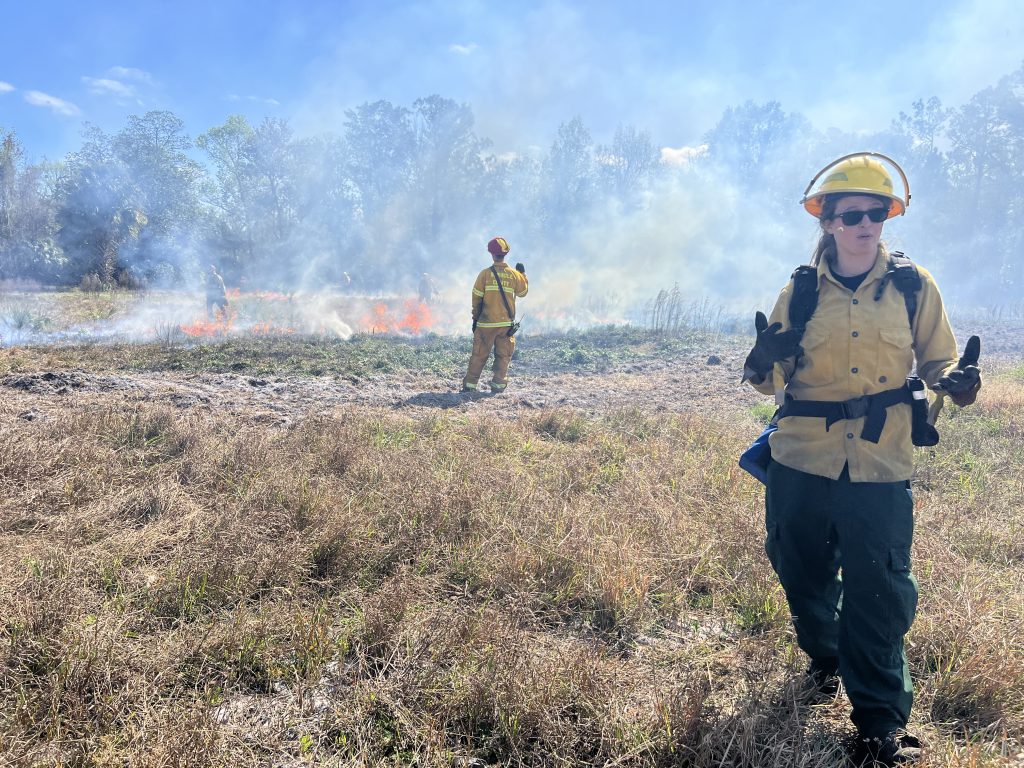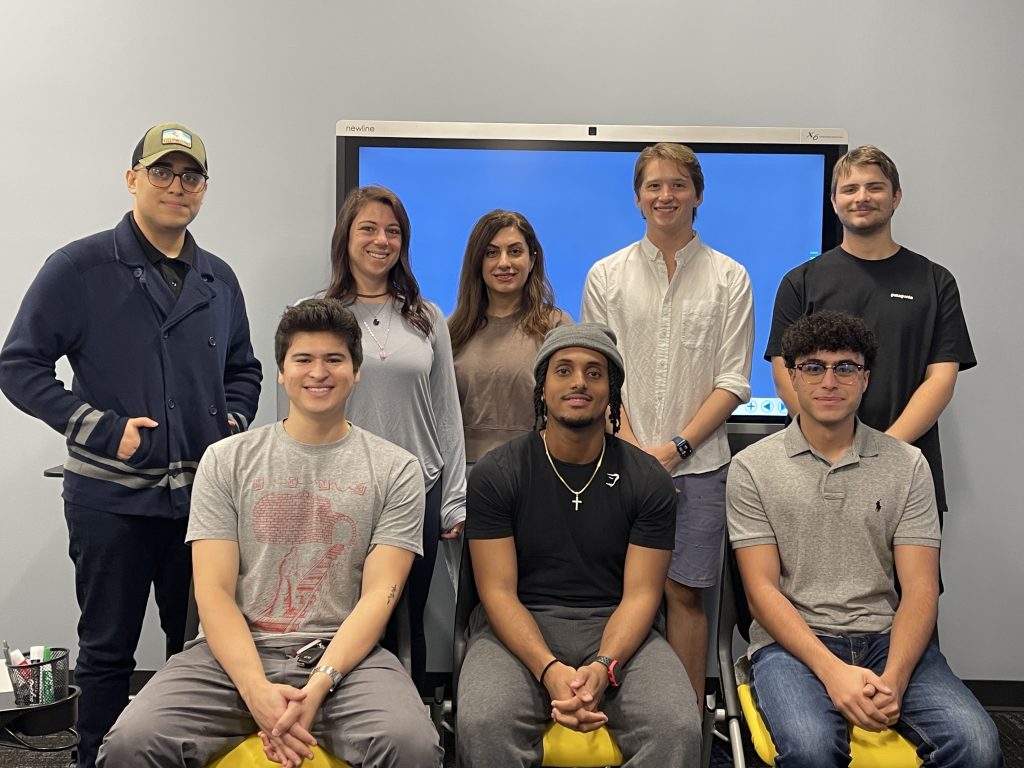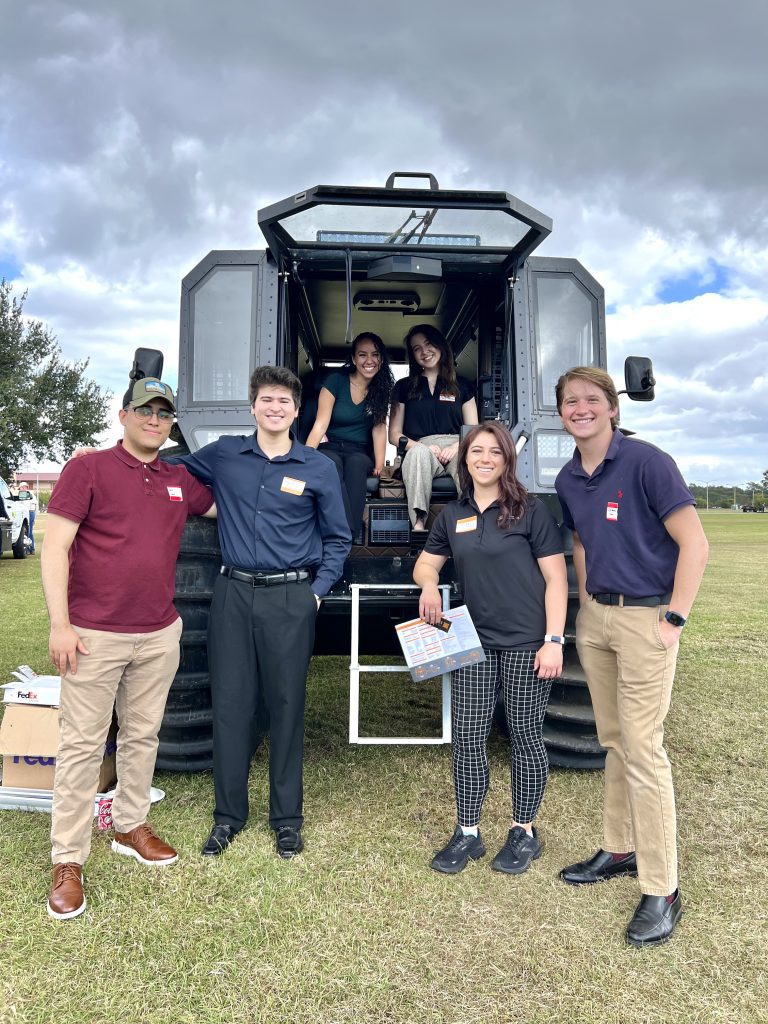Psychology Research Project Supports Well-Being of Prescribed Fire Practitioners
Psychology Assistant Professor Chelsea LeNoble, Ph.D. is spearheading a research project on the well-being of prescribed fire practitioners. LeNoble shared, “Prescribed fire is a tool that can prevent more catastrophic wildfires. It helps by reducing fuels (e.g., sticks, leaves, fallen trees) in a controlled way and maintaining the health of the natural ecosystems that rely on fire.”

LeNoble and her research team were recently invited to share their findings with the Central Florida Prescribed Fire Council at their annual meeting, where they presented preliminary findings to around 300 attendees in-person and on Zoom and conducted workshops.

Front row: Steven Samosky, Izayah Franco, Ziyad Zeid

Front row: Kevin Llanos, Steven Samosky, Chelsea LeNoble, Zachary Carr
We spoke with LeNoble and Kevin Llanos, an undergraduate Psychology student, on their work with this project.
Chelsea LeNoble, Ph.D.
What kind of challenges do prescribed fire practitioners face?
With our research, we are looking to understand the challenges that prescribed (Rx) fire practitioners face because we are interested in not only supporting their occupational health but also their work more broadly because of how important these workers are for the health and resilience of society as a whole—even if many folks don’t know who they are or what they do!
The top challenges they face that make it difficult to meet their burning objectives include:
1. General workforce availability
2. Unpredictability of the weather
3. Team dynamics and communication
What methods have you uncovered to help them?
Our research leads us to believe it would be helpful for additional workforce pipeline infrastructure (such as a clear education and training pipeline into Rx fire positions) to be developed in support of this critical occupation. This would depend on public support and legislation that invests in this workforce development, which would address the number one challenge of workforce availability. This could also alleviate pressure on the current leaders in Rx fire who face the kinds of challenges and experience the kinds of thoughts and emotions that may lead to exhaustion and burnout if this support is not provided—which would pose a significant problem to our overall societal resilience.
Kevin Llanos
Why did you become involved in this project?
I became an undergraduate research assistant under Dr. Chelsea LeNoble during the spring of 2023. We initially connected through the Burnett Honors College Match Week. As an honors student, I recognize that I was fortunate to have an opportunity to meet her and get involved in research right away.
As soon as I was given the news about being accepted into the lab, I started working directly with Dr. LeNoble on various sections of the project.
What has been your favorite part so far?
My favorite part has been working in an interdisciplinary, dynamic and goal-driven group composed of talented students who are invested in the project. Connecting through interdisciplinary research has brought us closer as a team. We have learned so much from each other.
How did the project inspire you to switch to I-O Psychology? What is it about I-O that you love so much?
In a way, my decision to join I-O happened the moment I applied for the position. It was one of those instances where you just know something “feels right about this, but I will figure out the why later.” I-O Psychology is what I want to pursue. Not what someone else suggested or what others were pursuing.
Learn more about undergraduate programs in the Department of Psychology here.
